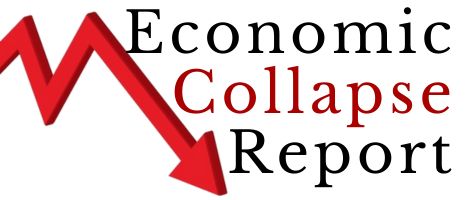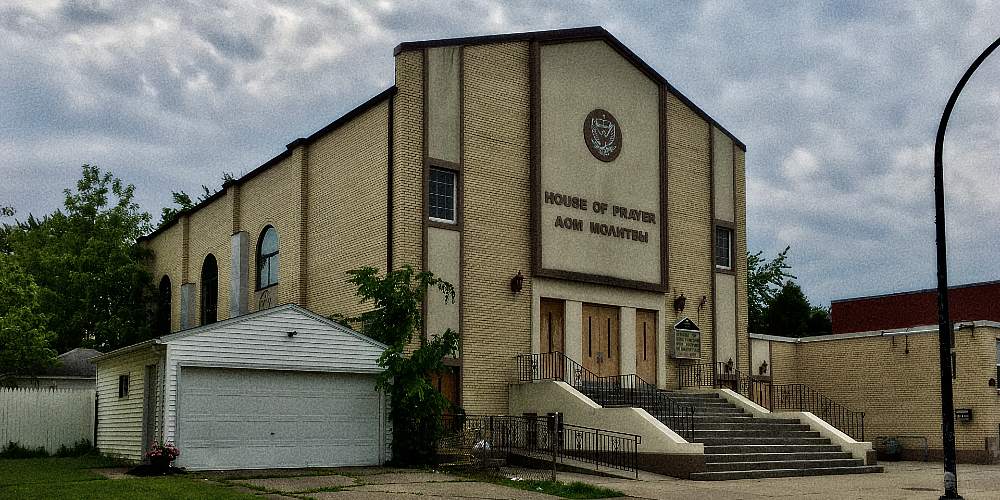(RealClearEducation)—Recently, I was on a 3-person panel discussion and debate at Harvard University’s Kennedy School of Government. We were asked to address the question of whether religious charter schools are constitutional. We also shared how we thought the U.S. Supreme Court would rule. This issue has risen to the forefront of educational debate largely because of the U.S. Supreme Court Carson v. Makin (2022) case and an effort in Oklahoma to found a religious charter school, St. Isadore of Seville Catholic Virtual School.
In 2023-2024. However, one should note that these developments did not launch the momentum to rule in favor of religious charter schools, but they built on earlier debates and statements from prior cases including Justice Stephen Breyer’s question in the Espinosa vs. Montana Department of Revenue (2020) case, asking about religious charter schools. Bill Clinton’s speech in 1995 in Vienna, Virginia stating that past U.S. Supreme Court decisions regarding faith were misinterpreted has also played an important role in the debate on religious charter schools.
The Carson v. Makin (2022) case, based in Maine, played a major role in increasing the momentum for religious charter schools. In that case, the state of Maine had provided vouchers for a good number of parents who desired to send their children to non-religious private schools. In contrast, however, Maine’s government did not provide these vouchers for parents who wished to send their children to religious private schools. In a decision penned by Chief Justice Roberts, the U.S. Supreme Court voted 6-3 that the Maine voucher program was unconstitutional because it discriminated against faith-based schools.
As important as the Carson v. Makin (2022) case is, there remain three issues that the U.S. Supreme Court needs to address in any decision on the constitutionality of religious charter schools. First, are religious charter schools constitutional? Second, to what degree may state governments impose restrictions on religious private schools that may inhibit their religious freedoms or beliefs? For example, Adam Frey, the Attorney General of Maine, clarified the state of Maine’s policy following the Carson v. Makin (2022) decision. Frey declared that in order for any private school to participate in the voucher program, it had to agree to follow Maine’s Human Rights Act. The question that the U.S. Supreme Court needs to answer is to what extent states may initiate such actions. How far is it legally permissible for them to go? Where does one draw the line?
The third issue that the U.S. Supreme Court must address is that it needs to determine whether those who run charter schools are state or private actors. This is because the vast majority of people who run charter schools are private groups. However, these charters are defined by law as public schools and are supported by tax-payer dollars. If the Court rules that those who operate the charter schools are state actors, then because they must be non-sectarian, religious charter schools will be ruled unconstitutional. However, if the Court rules that charter schools are private actors, then religious charter schools will be ruled constitutional.
The problem is that determining whether those who run charter schools are state or private actors will not be easy. This is because the courts have often disagreed with each other in their conclusions. For example, the Ninth Circuit Court of Appeals in 2010 (in Caviness v. Horizon Community Learning Center), determined that charter schools were private actors when it came to firing educators. That is, no state hearings were necessary. The case is likely particularly salient, because it cited a U.S. Supreme Court case, Rendell-Baker v. Kohn (1982). This case involved a private school that was very similar to a charter school. It was created to help kids really struggling in school and received about 90% of its funding from the government. The U.S. Supreme Court also found the school to be a private actor in the case of an employee being fired. The Court might view the Rendell-Baker v. Kohn (1982) case as the pivotal one in terms of helping establish precedent for its eventual decisions on religious charter schools, in part because it is a U.S. Supreme Court case. However, in a 2022 Fourth Circuit Court of Appeals case (Peltier v. Charter Day School), regarding school dress codes, the ruling was that those who ran charter schools were state actors.
Whether the Court will utilize the St. Isadore of Seville Catholic Virtual School case to address these issues or wait for a future case remains to be seen. Nevertheless, given that Carson v. Makin (2022) and Justice Breyer’s 2020 statement have brought this issue to the forefront, one can foresee a scenario in which one may not have to wait long.
During the panel discussion, I opined that the U.S. Supreme Court will likely eventually rule that religious charter schools are constitutional. I did not give a precise timeline regarding when such a ruling might take place. Nevertheless, the other two academics on the panel agreed with my prediction, one of whom was a well-seasoned Harvard law professor.
Almost as salient as the issue of whether religious charter schools are constitutional is the context the U.S. Supreme Court establishes in their decision. The U.S. Supreme Court will either provide a narrow context for its decision or a broader one. An example of a narrow context would be declaring that religious charter schools are constitutional, but the Court will leave it up to the states to determine the degree of implementation. An example of a broader context would be if the U.S. Supreme Court decides that if a state has charter schools, it must at least offer the possibility of having religious charter schools.
Whatever the Court decides, it will have a substantial long-term impact on schools and society. If the court decides that religious charter schools are constitutional, one result is that will like give families more options in terms of choosing schools for their children. According to David Tyack in his book, The One Best System, the American system of schooling is far too monolithic and the historical trend toward increased centralization is not consistent with the nation’s diversity. In the next several years the nation will discover whether the U.S. Supreme Court agrees.

It’s becoming increasingly clear that fiat currencies across the globe, including the U.S. Dollar, are under attack. Paper money is losing its value, translating into insane inflation and less value in our life’s savings.
Genesis Gold Group believes physical precious metals are an amazing option for those seeking to move their wealth or retirement to higher ground. Whether Central Bank Digital Currencies replace current fiat currencies or not, precious metals are poised to retain or even increase in value. This is why central banks and mega-asset managers like BlackRock are moving much of their holdings to precious metals.
As a Christian company, Genesis Gold Group has maintained a perfect 5 out of 5 rating with the Better Business Bureau. Their faith-driven values allow them to help Americans protect their life’s savings without the gimmicks used by most precious metals companies. Reach out to them today to see how they can streamline the rollover or transfer of your current and previous retirement accounts.
Kamala Harris Says the American Dream Is “Gone”
by Modernity News
During a pre recorded interview, Kamala Harris once again failed to deliver any substantive outline of her policies, primarily attacking Donald Trump’s outlook and his first term in office. At one point when speaking about the economy, Harris appeared to suggest, in stark contrast to Trump, that the American Dream…
Gold Price Forecasts Skyrocket Following Moves by China and the Fed
by Sponsored Post
With the Federal Reserve beginning what most expect to be a sustained easing cycle, momentum continues to rise for gold and silver. Values have been steadily rising and the newest forecasts point to even more gains down the road. At the end of September, BMO Capital Markets published updated commodity…
Taxes and Tariffs and Trade: Oh My! Trump’s Plan to Bolster the Economy
by Just The News
In a bid to build a broader coalition, former President Donald Trump has outlined a vision of tax cuts, import tariffs, and “reciprocal trade” to preserve and restore American industries. Since coming down the escalator of Trump Tower in 2015, the Republican standard bearer has espoused unconventional trade policies and…
Expert Testimony: Mass Immigration Under Biden-Harris Is Driving Up Rents for Americans
by Breitbart
The arrival of millions of foreign nationals, many of whom are illegal aliens, under President Joe Biden and Vice President Kamala Harris is helping to drive up rents for working- and middle-class Americans, an expert witness told Congress Wednesday. Center for Immigration Studies Director of Research Steven Camarota told the…
This Year Marks First Since 1958 That Us Held No Oil and Gas Lease Sales
by Just The News
This year will be the first year since 1958 that the Bureau of Ocean Energy Management held no offshore oil and gas lease sales. Energy expert Alex Epstein, author of “Fossil Future,” argued at a recent House Budget Committee hearing the United States’ record-high oil production is in spite of…
Kamala’s Devastating Middle Class Taxes
by Independent Sentinel
With the election coming up, the IRS plans to reduce our taxes for 2025. it’s a common tactic to make it seem like they won’t tax us into oblivion once they return to office. CBS News: Some Americans could see lower federal income taxes in 2025 due to an annual…
Congress Passes Stop-Gap Spending Bill After Failed Mike Johnson Gambit
by Breitbart
Congress on Wednesday passed legislation that would fund the government through nearly the end of December. The House and the Senate passed a stop-gap spending bill that would push the government spending deadline to December 20. The measure, otherwise known as a continuing resolution (CR), keeps federal spending the same….
A ‘Bipartisan’ Bar Tried to Open in DC, Then Libs Cried That an Elephant Image Was ‘Hurtful.’
by The National Pulse
A new bar in Washington, D.C., whose political theme focused on bipartisan agreement and debate, succumbed to partisan pressure before the establishment could even serve its first drink. Originally billed as Political Pattie’s, the bar was flooded with complaints by liberals who said the establishment’s logo—specifically the Republican Elephant—was offensive…
Newsom Signs Bill Requiring Janitors to Take $200 Sexual Harassment Training
by Just The News
California Gov. Gavin Newsom signed a bill requiring companies that hire janitors to make sure janitors take sexual assault training every other year, and pay $200 per participant for sessions with under 10 janitors present, and $8 for sessions with 10 or more janitors. The bill also requires the government…
Biden-Harris Regime Prepares Another $8 Billion in Military Aid for Ukraine During Zelensky’s Washington Visit
by The Gateway Pundit
The Biden-Harris regime is once again prioritizing foreign interests over the well-being of American citizens, with plans to announce an eye-watering $8 billion in military aid for Ukraine during Ukrainian President Volodymyr Zelensky’s visit to Washington. This massive giveaway comes as Americans continue to face economic hardships, skyrocketing inflation, and…
‘Economic Dystopia:’ Silicon Valley Tycoon Predicts AI Will Take Over 80% of All Work
by Breitbart
Vinod Khosla, legendary Silicon Valley investor and entrepreneur, has predicted that AI will replace the majority of work in most jobs, necessitating the implementation of universal basic income (UBI) to prevent economic instability and inequity. Fortune reports that in a recent blog post, Vinod Khosla, the billionaire co-founder of Sun…


